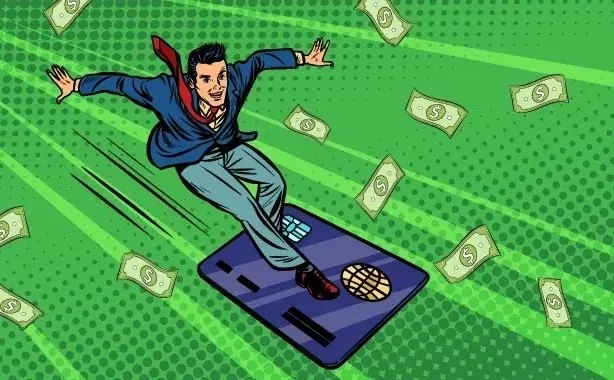FCBA (Fair Credit Billing Act) Lawyers

Credit card fraud can destroy financial and mental health! But the Fair Credit Billing Act protects you. Learn more.
In the world of consumer credit, there is almost nothing more deflating, disempowering, and upsetting than realizing you’ve fallen victim to credit card fraud. It’s a hit to your finances, your sense of self, and your reputation. And it’s exponentially worse when credit card companies and other financial institutions don’t follow the law to help protect you.
If you’re searching for a credit card fraud lawyer or a credit card theft lawyer “near me,” then you have likely already been victimized by this pervasive crime, and now you need help. For better or worse, you’re certainly not alone in this situation. The Federal Trade Commission (FTC) reported receiving fraud reports from 2.4 million people in 2022. New FTC Data Show Consumers Reported Losing Nearly $8.8 Billion to Scams in 2022.
And there’s likely also a large amount of fraud that goes unreported to the FTC. Fraudsters continuously perfect their scams to blur the line between seemingly legitimate opportunities and nefarious criminal activities. It is difficult for even the most diligent and security-conscious consumer to keep up and stay safe.
So, what happens if you find yourself the victim of credit card fraud? Who can help guide you back to financial repair and protect your rights? We can! With seventy-five years of combined practice experience and a nationwide presence, the highly skilled and knowledgeable consumer protection lawyers at Consumer Attorneys are your best asset for fighting back!
I'll explain what the Fair Credit Billing Act (FCBA) is and how it protects you, what to do if you’ve experienced credit card fraud, what a credit card fraud attorney is, how they can help, and why you’ll pay nothing out of pocket for our legal services if we file a lawsuit on your behalf.
Keep reading to get informed, be empowered, and make the best decisions to protect and repair your financial and emotional health!
What Is the Fair Credit Billing Act?
Seeing strange charges on your credit card is terrifying. Where did they come from? How did whoever used your credit card get your information? What do they have? How big a problem is this? What else are they doing with your information? It’s overwhelming, stressful, and scary. Fixing it is time-consuming, exhausting, and filled with hurdles.
If the unrecognized charges are hidden charges from your credit card company, you are likely also feeling angry. Likely wondering, how long have they been charging me for this? What is it for? Is it fair?
The Fair Credit Billing Act (FCBA) is a federal law that protects consumers from unfair credit billing practices, such as fraud or unauthorized charges. It gives consumers the right to dispute incorrect charges and ensures credit card companies follow the law when fraud strikes. The FCBA applies to credit card accounts, charge accounts, and open lines of credit, so it directly covers credit card fraud. These are your rights.
Having rights and standing up for them are two different things. Standing up for your rights takes time, energy, and, when you’re fighting a large corporation, courage and know-how.
If you’re searching for a “credit card dispute lawyer near me” or a “lawyer for credit card dispute” because you’ve fallen victim to credit card fraud, you’re in the right place. Our FCBA lawyers at Consumer Attorneys are here to guide you through the legal process and protect your financial well-being.
Common Examples of Credit Card Billing Problems
Credit card billing errors happen more often than you might think, and they can quickly wreak havoc on your finances if not addressed promptly. Let’s explore some of the most common examples of these issues so that you can recognize and resolve them before they escalate.
Unauthorized Charges or Charges You Didn’t Approve
Imagine reviewing your credit card statement only to find a charge for a product you never bought or a merchant you don’t recognize. Unfortunately, this scenario is far too common. 60% of U.S. credit card holders have been victimized by fraud, with 45% experiencing it more than once. Fraudsters often steal your credit card information remotely—without even touching your physical card—leading to unauthorized purchases that can add up to significant financial losses. In 2023 alone, 52 million Americans faced fraudulent charges, resulting in over $5 billion in unauthorized spending.
Charges for Items You Didn’t Receive
We have all likely experienced the frustration and anger that comes from when you place an order online and wait for it to arrive, but it never does—and your credit card is still charged. This frustrating scenario is unfortunately common in the age of e-commerce, where 16% of consumers report having paid for items that were never delivered. Whether it’s due to a vendor’s error or outright fraud, charges for undelivered goods remain a widespread problem for many credit card users.
Incorrect Transaction Amounts or Errors
Sometimes, retailers make mistakes, too. Whether they accidentally charge you twice for a purchase or bill you for an amount far exceeding what you authorized, these errors can happen because of human oversight or technical glitches. Although it can feel overwhelming to spot these discrepancies, regularly checking your statements for these mistakes is crucial for preventing long-term financial consequences.
Payments That The Credit Card Company Did Not Credit Properly
You’ve paid your bill on time, but for some reason, your payment isn’t reflected on your account, leaving you stuck with late fees or interest charges. Around 29% of Americans have reported experiencing issues where payments were lost, misapplied, or not credited correctly. These types of billing problems can quickly snowball, leading to higher charges and negative impacts on your credit score.
Items Not as Described or Damaged
Imagine buying a brand-new item, only to receive something used, damaged, or completely different from what you expected. In cases like these, consumers are often left dealing with the hassle of disputing the charge. 12% of cardholders have encountered recurring fraudulent charges, including charges for services or items that don’t match what was promised. Disputes can be complicated and drawn out, but catching the issue early is key to resolving it.
Identity Theft and Stolen Credit Cards
While you might think your physical credit card is your main concern, it’s important to remember that 93% of fraudulent charges occur without the card ever being lost or stolen. Identity thieves and cybercriminals are now using sophisticated methods to access your account information remotely. With 60% of cardholders having experienced credit card fraud at least once, it’s clear that digital criminals are finding new ways to exploit cardholders. Keeping your digital information secure is just as critical as safeguarding your physical card.
Accounts the FCBA Covers and Protects
The FCBA applies to open-ended credit accounts - these include credit cards, charge cards, and lines of credit. If your account allows you to make ongoing purchases without a set repayment schedule (like a credit card), you’re protected by the FCBA. This means that if you spot unauthorized charges, billing errors, or fraudulent activity on any of these accounts, you can dispute them under this law.
However, the FCBA doesn’t cover loans like mortgages or auto loans, which have set payment schedules. If you’re unsure whether your account is covered, our Fair Credit Billing Act lawyers can help you figure it out and explain your rights.
Your Rights Under the FCBA
If you’ve experienced credit card fraud or unauthorized charges, you have several rights under the Fair Credit Billing Act that you can use to protect yourself and your finances. Here’s a breakdown of your rights:
| Your Right | What It Means |
|---|---|
| Dispute Charges | You can dispute fraudulent or incorrect charges on your billing statement, but you must do so within 60 days from the billing date. Many credit card companies may waive your liability entirely. |
| Limited Liability for Fraud | Even if someone racks up thousands of dollars in fraudulent charges, you’re only liable for up to $50, thanks to the FCBA. Many companies will waive this entirely, so you may owe nothing. |
| Dispute for Undelivered Goods | If you ordered something but never got it, you can dispute the charge under the FCBA and potentially get your money back. |
| Hold Payment While Disputing | While your dispute is being investigated, you don’t have to pay the disputed charges. This is known as "forbearance." The credit card company also can’t send you to collections for the amount in dispute. |
| Investigation Rights | The credit card company must respond to your written dispute within 30 days and resolve the issue within 90 days. If they deny your claim, they must prove the charges are valid. If you win, the charges will be removed, and your credit will be fixed. |
If your rights under the FCBA are violated or ignored, our Fair Credit Billing Act attorneys are here to step in and make sure any wrongdoers are held accountable. Justice won’t just happen unless we work for it. And you get the compensation you deserve for having your rights ignored.
What to Do If You’ve Experienced Credit Card Fraud
If you suspect credit card fraud, here are the steps you should take right away:
- Notify the fraud department. Call your credit card’s fraud department immediately. This stops further fraudulent activity and often results in the compromised card being canceled and replaced. Remember, this is not your formal dispute—it’s simply to stop ongoing fraud.
- File a written dispute. Send a written dispute within 60 days of the billing statement showing fraudulent charges. Make sure to send this via certified mail to the address listed on the billing statement, not just the customer service address. Clearly identify the fraudulent charges and include supporting documentation, like copies of your statements.
- Review your credit reports. Check your credit reports with Experian, Equifax, and TransUnion for any other suspicious activity. You can request a free report weekly from annualcreditreport.com and place a fraud alert on your accounts if needed.
- File a police report. In cases of significant or widespread fraud, it’s a good idea to file a police report or report the fraud to the FTC. This creates a paper trail if further legal action is needed.
- Contact a credit card dispute lawyer. If the credit card company refuses to remove the fraudulent charges or fails to properly investigate your claim, it’s time to call in legal help. A lawyer for credit card disputes can guide you through the process, enforce your rights, and hold the credit card company accountable.
Our Fair Credit Billing Act Attorneys Can Help You
At Consumer Attorneys, we understand how frustrating and disempowering credit card fraud can be. Whether it’s a one-time unauthorized charge or widespread fraud, our team of experienced FCBA lawyers is ready to help you reclaim your finances and restore your peace of mind.
We’ve helped countless clients fight back against fraudulent charges, and we can help you too. Here’s what we do:
- Guide you through the dispute process. From filing the initial dispute to holding the credit card company accountable for their investigation, we’ll be by your side every step of the way.
- Handle uncooperative credit card companies. If your credit card company refuses to follow the law or dismisses your dispute without justification, we’ll step in to enforce your rights.
- Work with no upfront costs. The best part? You don’t pay anything out of pocket for our services. Under the FCBA, the credit card company is responsible for paying our fees if we win your case. So, there’s no financial risk to you in hiring us.
- Help with related credit reporting issues. One of the worst things about credit card fraud is that problems can emerge later - well after you think you’ve fixed the problem. Credit card fraud often spills over into credit reporting problems. If your credit score has been harmed due to fraudulent charges, our Fair Credit Billing Act lawyers can help correct your credit report under the Fair Credit Reporting Act (FCRA).
- File a lawsuit. If your credit card company refuses to cooperate or resolve the issue or if circumstances make a lawsuit necessary, we can file one on your behalf to protect your rights and recover damages. We’ll take on the legal battle, file the necessary motions, and work hard to see you get the justice and compensation you deserve.
Contact Our Lawyers for Credit Card Disputes Today
If you’re facing credit card fraud, don’t go through it alone. Our credit card dispute lawyers at Consumer Attorneys are ready to fight for your rights and make sure you get the justice and financial repair you deserve. With over 75 years of combined experience, we have the tools and knowledge to help you every step of the way.
Searching for a “credit card dispute lawyer near me”? Reach out to us today for a free consultation. We know that you won’t necessarily know whether you need a lawyer until you talk to a lawyer. So, we invite you to call or contact us today to schedule your free consultation. Whether it’s under the FCBA or FCRA, we’re here to help you navigate the legal landscape and restore your financial health. You’ve worked hard for your money—let us help you protect it!
Frequently Asked Questions
The Fair Credit Reporting Act (FCRA) and the Fair Credit Billing Act (FCBA) are both federal laws that protect consumers, but they focus on different areas. The FCRA deals with your credit report and how credit reporting agencies like Equifax, Experian, and TransUnion collect, use, and share information. It ensures that your credit report is accurate and gives you the right to dispute incorrect information. The FCBA, on the other hand, focuses on protecting consumers from unfair billing practices on open-ended credit accounts like credit cards. It gives you the right to dispute fraudulent or incorrect charges on your account. While both laws protect consumers, the FCRA is about credit reporting, and the FCBA is about credit billing disputes.
The credit card companies are responsible for billing error investigation. However, you are responsible for reviewing your monthly credit card statements, identifying any fraudulent activity, and disputing fraudulent charges within 60 days from the date on the billing statement on which the charges are posted. The credit card company is then responsible for confirming receipt of the dispute within 30 days, investigating the disputed charges, informing you of its determination within 90 days, and providing documentation that the charges were authorized by you, if that is the ultimate finding.
Section 170 of the Fair Credit Billing Act (FCBA) specifically outlines the procedures for resolving billing errors on credit card statements. This section requires credit card companies to follow strict guidelines when a consumer disputes a charge. Under Section 170, once you submit a written dispute, the credit card company must acknowledge it within 30 days and resolve it within 90 days. During this time, they cannot collect the disputed amount or report it to credit bureaus as delinquent. If they find the charge is incorrect, they must remove it. If they find the charge is legitimate, they must provide documentation proving its validity. This section ensures a fair process for consumers when handling billing disputes.
A credit card dispute attorney focuses specifically on issues like billing errors, unauthorized charges, and FCBA violations, while general consumer lawyers may handle a wider range of cases.
R
ONGS™You pay nothing. The law makes them pay.













